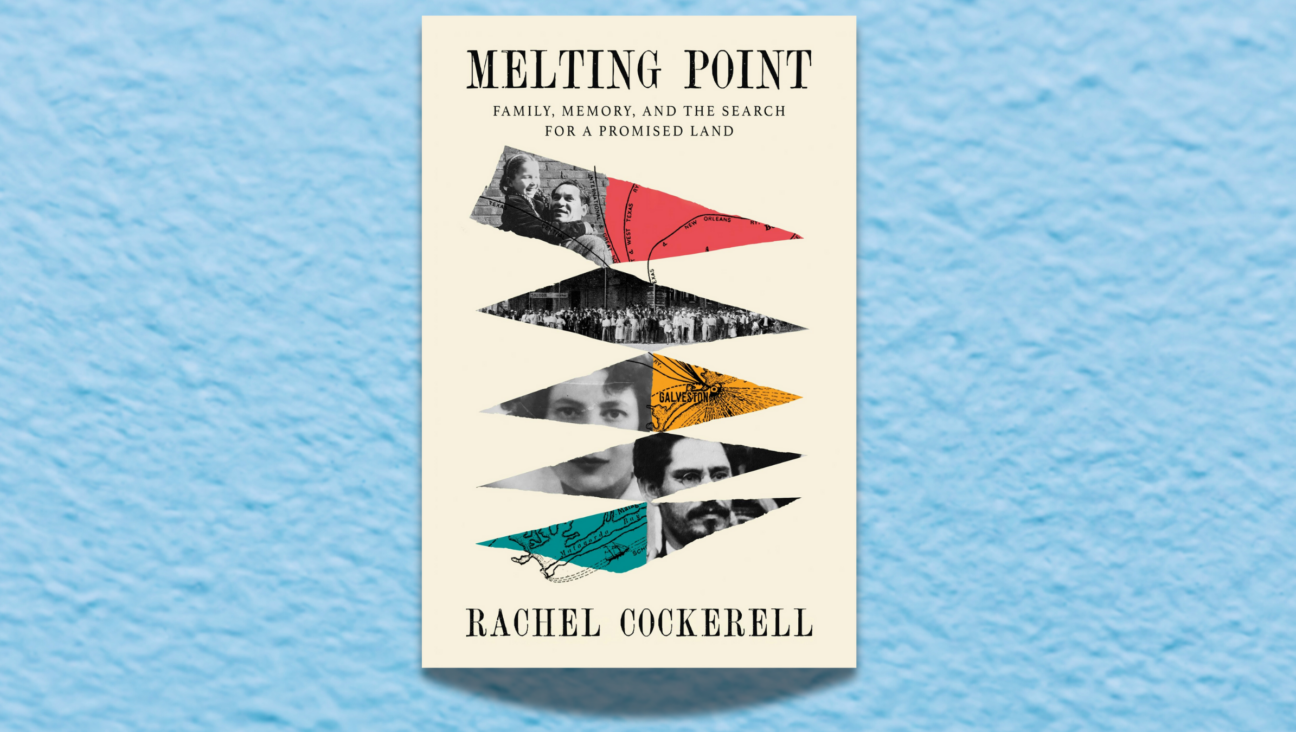Afropoptastic

Gallery of Fools: Fool?s Gold?s eponymous debut album of Hebrew Afropop was short-listed by the Web site Pitchfork as one of 2009?s best. Image by MARIANNE WILLIAMS
In 1985, after wearing out a cassette of the Boyoyo Boys’ song “Gumboots,” Jewish singer/songwriter Paul Simon flew to South Africa to record “Graceland.” Nowadays, magnetic tape may seem antiquated, but 25 years later, American Jewish artists are still drawing heavily on African popular music. Afropop, encompassing genres as varied as the Afrobeat pioneered in Nigeria by Fela Kuti and the Mbaqanga of South Africa, which moved Paul Simon, inspires an array of American Jewish music composed of a multitude of different genres and styles.
On January 17, the indie Afropop band Vampire Weekend’s sophomore album, “Contra,” debuted at the No. 1 spot on the Billboard album charts. On his blog, Internet Vibes, lead vocalist Ezra Koenig describes himself as a “fourth-generation Ivy League, deracinated, American Jew born on the UWS.” Though lyrically he shies away from explicitly addressing his Jewishness, the first single off the new album, “Horchata,” includes the couplet, “You’d remember drinking horchata /You’d still enjoy it with your foot on Masada,” and his nonlyrical blogging addresses why a Jewish boy would draw so heavily upon South African traditional music and not just a touch of Jamaican ska. “Growing up Jewish, you are presented with three images of your people. Desert nomads building pyramids. Eastern-European shtetl-dwellers with big beards. American liberals who eat Chinese food all the time. Now do you see where I’m coming from?” Koenig wrote on his blog in 2006.
If Koenig sees Afropop as a way of managing the clichés and expectations of growing up Jewish in America, his contemporaries have found a way into their Judaism through the continent. Luke Top, the lead singer of Fool’s Gold, sings the majority of the band’s songs — a combination of Ethiopian soul, folk, Sahara desert blues, Soukous and Ghana highlife — in Hebrew. Though both Top and keyboardist Amir Kenan were born in Israel, Top’s family immigrated to the United States when he was a child. Feeling alienated from both Israeli and American culture, Top describes himself as occupying a “purgatory state” of identity, and views Fool’s Gold as a way of expressing his Jewishness.
“Singing in Hebrew has helped me create my own take on who I am,” he said. “It’s nice to have a channel into Judaism that’s my own. I feel like a different person since I started singing in Hebrew.”
The band’s Hebrew Afropop has been critically lauded, and the indie tastemaker Web site Pitchfork short-listed its debut on a list of best albums of 2009. Much of that success comes from the heavily African influences on the album, influences that Top sees as essential to his Jewish expression. Though initially he blames his interest in African music on his own personal diaspora — “a lack of firm identity or place in this world leads me to identify with something further away” — he quickly finds emotional and musical links between Judaism and Africa. “There’s a lot of yearning in both,” he said. “Hebrew has a built-in melancholy or cantorial color to it that somehow matches with African sounds. We’ve been in tears before while playing.” Top plans on visiting Israel in August and hopes to play some shows with the band.
For jazz saxophonist Jacques Schwarz-Bart, the son of novelists André and Simone Schwarz-Bart, the link between Judaism and African music is forged in family. Growing up in Guadeloupe, the native home of his mother, made it natural for him to combine a number of influences, from gwo ka drumming in Guadeloupean folk music and the mystical Moroccan music of Gnawa to rhythm and blues and jazz. Though his Jewish identity is not always articulated in his music — most of which is instrumental — Schwarz-Bart sees it as integral to his work. “I have definitely a Jewish sensitivity from my youth and my connection with my father,” he said, recalling how a friend asked him why even his joyous songs are melancholic. “Look at my last name, and you will understand,” Schwarz-Bart told him.
Perhaps because of his upbringing, Schwarz-Bart sees African and Jewish music as ultimately compatible. He associates his own diasporism with the diaspora of sub-Saharan Africans who migrated to Morocco in the trans-Saharan trade, and has always felt drawn to the Gnawa music they brought with them. Similarly, the gwo ka music brought by former African slaves during the European slave trade to Guadeloupe resonated with him from an early age. When Schwarz-Bart was a child, his love for gwo ka drumming concerned his grandparents, who feared that he had become possessed and wanted to exorcise him. “They thought the devil had taken my heart,” he said. It was his father who put an end to the exorcism. “The reality is that no music brings people more together than this music. It elevates afflicted souls,” Schwarz-Bart said.
Schwarz-Bart even associates the musical structures of Jewish and African music, and suggests that Jewish culture is “somehow North African.” Trained at the Berklee College of Music, he sees commonalities between the musical scales of Jewish communities in Morocco and the shtetls of Poland or Romania, suggesting that the “shtetl-dwellers with big beards” that vexed Koenig may themselves be deeply linked to the music of Africa. “I don’t think it’s by chance that besides African Americans, the people who have embraced jazz from the beginning are Jews,” Schwarz-Bart said. He even half-jokingly noted the prevalent Jewfro, which “cannot possibly come from Europe.”
Another recent album, The Afro-Semitic Experience’s “The Road That Heals the Splintered Soul” (Reckless DC Music, 2009), charts musical influences that range from klezmer and Hasidic nigunim to gospel and bebop. The band, founded by African-American jazz pianist Warren Byrd and American Jewish jazz bassist David Chevan, attempts to create a hybrid form bridging Jewish and African-American spiritual traditions. On the track “A Torah Afloat in a Leaky Boat Lands in Congo Square,” the Afro-Semitic Experience eulogizes New Orleans and the Hurricane Katrina tragedy, and musically examines the phenomenon of Jewish artists finding inspiration in the traditions of African popular music.
Perhaps the most pragmatic explanation for the explosion of African-Jewish music is the availability of African music to listeners throughout the world. Though Simon had to travel to South Africa in the 1980s to record “Graceland,” other artists can simply pick up compilations and reissues of some of the most important African albums. Soundway Records’ Nigeria Special series makes formerly obscure genres like 1970s “Nigerian Psychedelic Afro-Rock & Fuzz Funk” and “Ghanaian Blues and Modern Highlife” available to a global audience, and Broadway’s “Fela!” documents the life of seminal Nigerian artist Kuti for musical theater audiences. Such Internet blogs as Awesome Tapes From Africa and Likembe disseminate rare and out-of-print albums to a global Internet audience, creating a digital connection to geographically and temporally distant artists and albums.
Sometimes, the best explanation for why Jewish artists are drawn to African music is the simplest one, the one that Simon gives for why he was moved by the Boyoyo Boys in 1985. “What is this tape?” he recounted asking on the Classic Albums DVD “Paul Simon: Graceland” “This is my favorite tape!” It just sounds amazing.
Mordechai Shinefield has written about music for Rolling Stone, Spin and the Village Voice. He is currently earning a Master of Arts degree in performance studies at New York University.
The Forward is free to read, but it isn’t free to produce

I hope you appreciated this article. Before you go, I’d like to ask you to please support the Forward.
Now more than ever, American Jews need independent news they can trust, with reporting driven by truth, not ideology. We serve you, not any ideological agenda.
At a time when other newsrooms are closing or cutting back, the Forward has removed its paywall and invested additional resources to report on the ground from Israel and around the U.S. on the impact of the war, rising antisemitism and polarized discourse.
This is a great time to support independent Jewish journalism you rely on. Make a Passover gift today!
— Rachel Fishman Feddersen, Publisher and CEO
Most Popular
- 1

News Student protesters being deported are not ‘martyrs and heroes,’ says former antisemitism envoy
- 2

News Who is Alan Garber, the Jewish Harvard president who stood up to Trump over antisemitism?
- 3

Politics Meet America’s potential first Jewish second family: Josh Shapiro, Lori, and their 4 kids
- 4

Fast Forward Suspected arsonist intended to beat Gov. Josh Shapiro with a sledgehammer, investigators say
In Case You Missed It
-
Fast Forward Jewish students, alumni decry ‘weaponization of antisemitism’ across country
-

Opinion I first met Netanyahu in 1988. Here’s how he became the most destructive leader in Israel’s history
-

Opinion Why can Harvard stand up to Trump? Because it didn’t give in to pro-Palestinian student protests
-

Culture How an Israeli dance company shaped a Catholic school boy’s life
-
Shop the Forward Store
100% of profits support our journalism
Republish This Story
Please read before republishing
We’re happy to make this story available to republish for free, unless it originated with JTA, Haaretz or another publication (as indicated on the article) and as long as you follow our guidelines.
You must comply with the following:
- Credit the Forward
- Retain our pixel
- Preserve our canonical link in Google search
- Add a noindex tag in Google search
See our full guidelines for more information, and this guide for detail about canonical URLs.
To republish, copy the HTML by clicking on the yellow button to the right; it includes our tracking pixel, all paragraph styles and hyperlinks, the author byline and credit to the Forward. It does not include images; to avoid copyright violations, you must add them manually, following our guidelines. Please email us at [email protected], subject line “republish,” with any questions or to let us know what stories you’re picking up.












